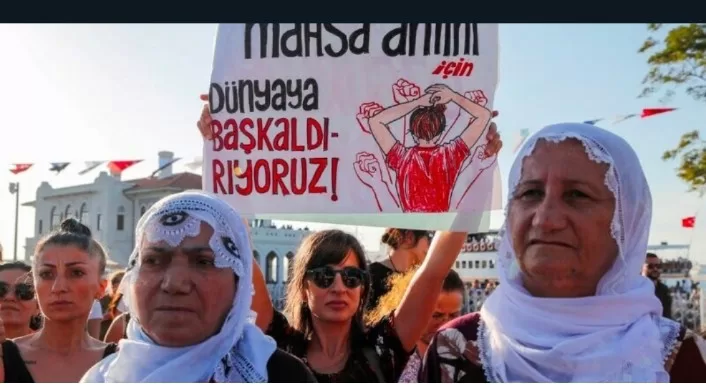In a significant development reported by state media on Sunday, two women journalists have been handed substantial prison sentences by an Iranian Revolutionary Court. Niloofar Hamedi and Elaheh Mohammadi have received sentences of 13 and 12 years, respectively. These verdicts come in the wake of their coverage of the tragic death of Kurdish-Iranian Mahsa Amini, who passed away while in the custody of the morality police in September of the preceding year, allegedly due to a violation of the Islamic dress code.
Amini’s death triggered widespread protests across Iran, posing one of the most substantial challenges to the country’s clerical leadership in decades. The charges leveled against Hamedi and Mohammadi include collaborating with the U.S. government and acting against national security, as reported by Iran’s state news agency, IRNA.
Notably, the legal representation for these journalists has vehemently rejected these charges. According to IRNA, Hamedi and Mohammadi were each sentenced to seven and six years, respectively, for their alleged collaboration with the U.S. government. Furthermore, they received five years in prison for acting against national security and an additional one year for propagating against the state.
Hamedi was detained following her capture of a photograph capturing Amini’s parents embracing each other in a Tehran hospital where their daughter lay in a coma. Meanwhile, Mohammadi was arrested after her coverage of Amini’s funeral in her Kurdish hometown of Saqez, which marked the initial epicenter of the widespread protests.
It is essential to note that these “issued verdicts” are subject to the possibility of appeal. In the event of confirmation, the duration of time already spent by these women in Evin jail, where most political prisoners are incarcerated, will be deducted from their sentences, as clarified by the judiciary’s Mizan news agency.
In a separate development, Iran’s intelligence ministry had released a statement in October of the prior year, accusing Mohammadi and Hamedi of acting as agents for the United States’ Central Intelligence Agency. According to Mizan, the ministry asserted, “There is documented evidence of Hamedi and Mohammadi’s deliberate connections with specific entities and individuals affiliated with the U.S. government.”







